
 Flash News
Flash News
Gunfire in Durres, a 30-year-old man is injured
Accident on Arbri Street, car goes off the road, two injured
Arrests of "Bankers Petrolium", Prosecution provides details: Exported and sold 532 billion lek of oil, caused millions of euros in damage to the state
Ndahet nga jeta tragjikisht në moshën 28-vjeçare ylli i Liverpool, Diogo Jota
Posta e mëngjesit/ Me 2 rreshta: Çfarë pati rëndësi dje në Shqipëri

by Ekrem Spahiu
The Albanian royalists, along with the other nationalist and democratic forces of the country, are facing a historical responsibility: the return of the natural right to the role it historically belongs to for the recovery and strengthening of the Albanian state.
The Albanian royals come from their historically life-saving investment in Albania since they provided it with the most consolidated and longest-lived state in the very nervous times between the two world wars.
The Albanian Kingdom oriented all governance structures and institutions according to the best Western models, calling and implementing the best legal, economic, military, and diplomatic expertise of the Western countries. The Basic Statute, the civil code, the commercial code, the criminal code, the code of civil procedure, etc., drawn up under that expertise, marked the complete separation from the legislation of the Ottoman period and oriented the development of Albania in terms of democratic potentials.
The ministers, deputies, and ambassadors of the time of the Albanian Kingdom were chosen from the most knowledgeable people in the country, and they put their skills at the service of the state and citizens, as required by their social status and their education. The state administration was created on these bases, whose official documentation remains the benchmark in every direction.
With experience and established authority, the control of the territory was strengthened to such a degree that, in all times afterward, the fact of safety and exemplary public order was remembered with nostalgia. A National Army was established with all the comparative European structures, which was given unprecedented support, allocating an advanced budget.
Property and cadastre were consecrated as essential elements of the law. Road infrastructure and numerous bridges were built from scratch. At that time, the Albanian capital took shape, with the main buildings, which even today constitute the passport of its urban identity.
The State of the Kingdom of Albania made Albanians proud by guaranteeing them free movement, with a passport worthy of their national identity in any country in the world. Albanian money, the famous Napoleon, was one of the strongest currencies of the time.
Freedom of expression and press was guaranteed. In that period, all sorts of opposition newspapers were published, in which there was no blasphemy, and no one was punished for writing against the government or even the King himself.
That state lasted only 11 years but left Albania a wealth of concepts, practices, and institutions, the standard of which, in many ways, has hardly been reached by subsequent governments.
In World War II, King Zog chose the right place and direction to exercise his anti-fascist and anti-Nazi commitment through active diplomacy abroad and the activation of Zogist forces from within the country in support and support of the Great Anti-Fascist Alliance.
The personalities, members, supporters, and supporters of the Kingdom were among those thousands of honest and democratic Albanians who were killed, imprisoned, and persecuted by the communist dictatorship. They faced the violence against them with rare dignity and stoicism. Meanwhile, King Zog (who never abdicated) and the royalists abroad, relying on the great Western democracies, never ceased their efforts against the communist dictatorship.
With this long essential national investment, the Albanian royalists, quite naturally and with confidence, became an active part of the country's democratic processes after the fall of the communist regime. In the framework of these processes, in the referendum held on June 29, 1997, the Albanian people massively chose the royal form of the system, proving precisely the belief in the historical values of the Kingdom for the destinies of not only Albania but the entire Albanian nation.
It is precisely this investment and this trust that obliges the Albanian royalists to redimension their commitment to the recovery of the Albanian state through the strengthening of democratic values and national values inherited from the state of the Kingdom of Albania. Today, more than ever, it is time for the Albanian royalists to assume the role that belongs to them as a national, historical, political, and moral obligation to protest:
The national issue is abandoned. National security is in constant decline. Public insecurity grows more and more every day. Democracy and political pluralism are seriously endangered. The justice system is almost non-existent. Public and private property is being slaughtered stimulated by the state. Corruption is eroding the power of the Albanian state and impoverishing Albanians. The family we are proud of as a nation is being degraded. The decline in national production has created poverty and unemployment, leading to the country's depopulation. The active part of society cannot find a safe alternative in its homeland. Public medical services are a disaster, while most imported medicines and foodstuffs are outdated.
Therefore, for the royalists, the historical responsibility translates into a historical obligation for the future of Albania: to engage with all democratic forms to return Albania to the tracks of values for which they invested since a century ago. Participating in the February 11 protest is one of the moments where they should evoke these values.
Latest news


Weather forecast for today
2025-07-04 07:36:43
"Don't be afraid", here's what the stars have predicted for each sign
2025-07-04 07:21:48
Morning Post/ In 2 lines: What mattered yesterday in Albania
2025-07-04 07:03:17
Bushati: Zegjineja, a book piloted by Rama
2025-07-03 22:57:30






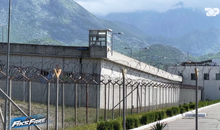
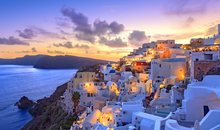
Greece imposes fee to visit Santorini, how many euros tourists must pay
2025-07-03 20:50:37
Don't make fun of the highlanders, Elisa!
2025-07-03 20:43:43
Gunfire in Durres, a 30-year-old man is injured
2025-07-03 20:30:52

The recount in Fier cast doubt on the integrity of the vote
2025-07-03 20:09:03
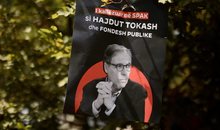

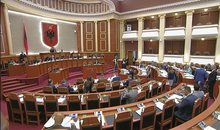

Heatwave has left at least 9 dead this week in Europe
2025-07-03 19:00:01
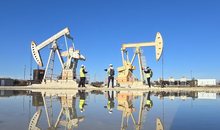
Oil exploitation, Bankers accused of 20-year fraud scheme
2025-07-03 18:33:52
Three drinks that make you sweat less in the summer
2025-07-03 18:19:35
What we know so far about the deaths of Diogo Jota and his brother André Silva
2025-07-03 18:01:56



Another heat wave is expected to grip Europe
2025-07-03 17:10:58
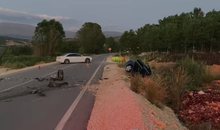
Accident on Arbri Street, car goes off the road, two injured
2025-07-03 16:45:27

Accused of two murders, England says "NO" to Ilirjan Zeqaj's extradition
2025-07-03 16:25:05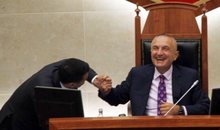
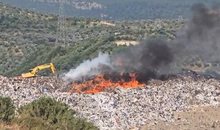



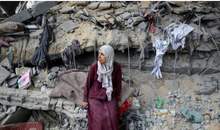
Gaza rescue teams: Israeli forces killed 25 people, 12 in shelters
2025-07-03 15:08:43
Diddy's trial ends, producer denied bail
2025-07-03 15:02:41

Agricultural production costs are rising rapidly, 4.8% in 2024
2025-07-03 14:55:13
Warning signs of poor blood circulation
2025-07-03 14:49:47
Croatia recommends its citizens not to travel to Serbia
2025-07-03 14:31:19
Berisha: Albania is the blackest stain in Europe for the export of emigrants
2025-07-03 14:20:19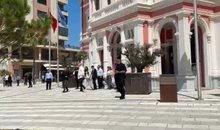

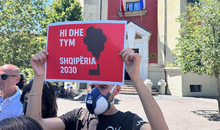
'Ministry of Smoke': Activists Blame Government for Wasteland Fires
2025-07-03 13:59:09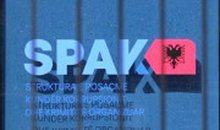

AFF message of condolences for the tragic loss of Diogo Jota and his brother
2025-07-03 13:41:36
Five healthy foods you should add to your diet
2025-07-03 13:30:19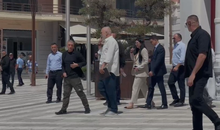



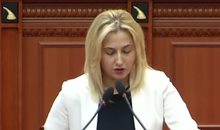


A unique summer season, full of rhythm and rewards for Credins bank customers!
2025-07-03 12:12:20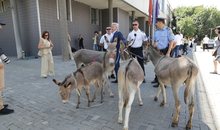

Fire situation in the country, 29 fires reported in 24 hours
2025-07-03 12:00:04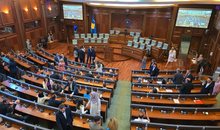
The constitution of the Kosovo Assembly fails for the 41st time
2025-07-03 11:59:57
The gendering of politics
2025-07-03 11:48:36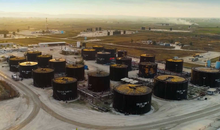
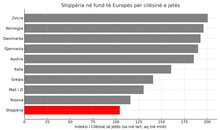
The price we pay after the "elections"
2025-07-03 11:25:39
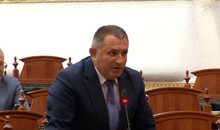
Xhafa: The fire at the Elbasan landfill was deliberately lit to destroy evidence
2025-07-03 11:08:43

The 3 zodiac signs that will have financial growth during July
2025-07-03 10:48:01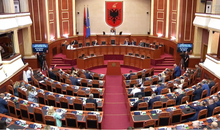
Democratic MP talks about the incinerator, Spiropali turns off her microphone
2025-07-03 10:39:24

Ndahet nga jeta tragjikisht në moshën 28-vjeçare ylli i Liverpool, Diogo Jota
2025-07-03 10:21:03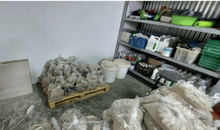
Cocaine trafficking network in Greece, including Albanians, uncovered
2025-07-03 10:10:12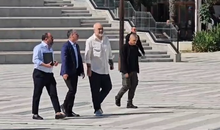
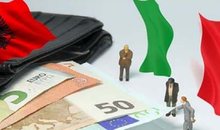
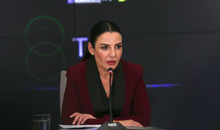
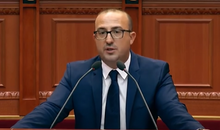
Korreshi: Election manipulation began long before the voting date
2025-07-03 09:39:13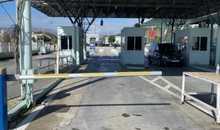
Arrest of Greek customs officer 'paralyzes' vehicle traffic at Qafë Botë
2025-07-03 09:28:41
After Tirana and Fier, the boxes are opened in Durrës today
2025-07-03 09:21:10
Enea Mihaj transfers to the USA, will play as an opponent of Messi and Uzun
2025-07-03 09:10:04

Foreign exchange, the rate at which foreign currencies are sold and bought
2025-07-03 08:53:50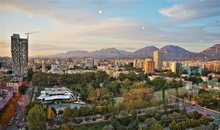
Index, Albania has the worst quality of life in Europe
2025-07-03 08:48:10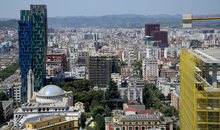
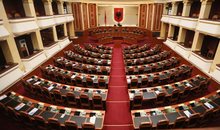
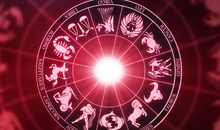
Horoscope, what do the stars have in store for you today?
2025-07-03 08:17:05
Clear weather and high temperatures, here's the forecast for this Thursday
2025-07-03 08:00:37
Posta e mëngjesit/ Me 2 rreshta: Çfarë pati rëndësi dje në Shqipëri
2025-07-03 07:46:48



Lufta në Gaza/ Pse Netanyahu do vetëm një armëpushim 60-ditor, jo të përhershëm?
2025-07-02 21:56:08
US suspends some military aid to Ukraine
2025-07-02 21:40:55



Methadone shortage, users return to heroin: We steal to buy it
2025-07-02 20:57:35
Government enters oil market, Rama: New price for consumers
2025-07-02 20:43:30
